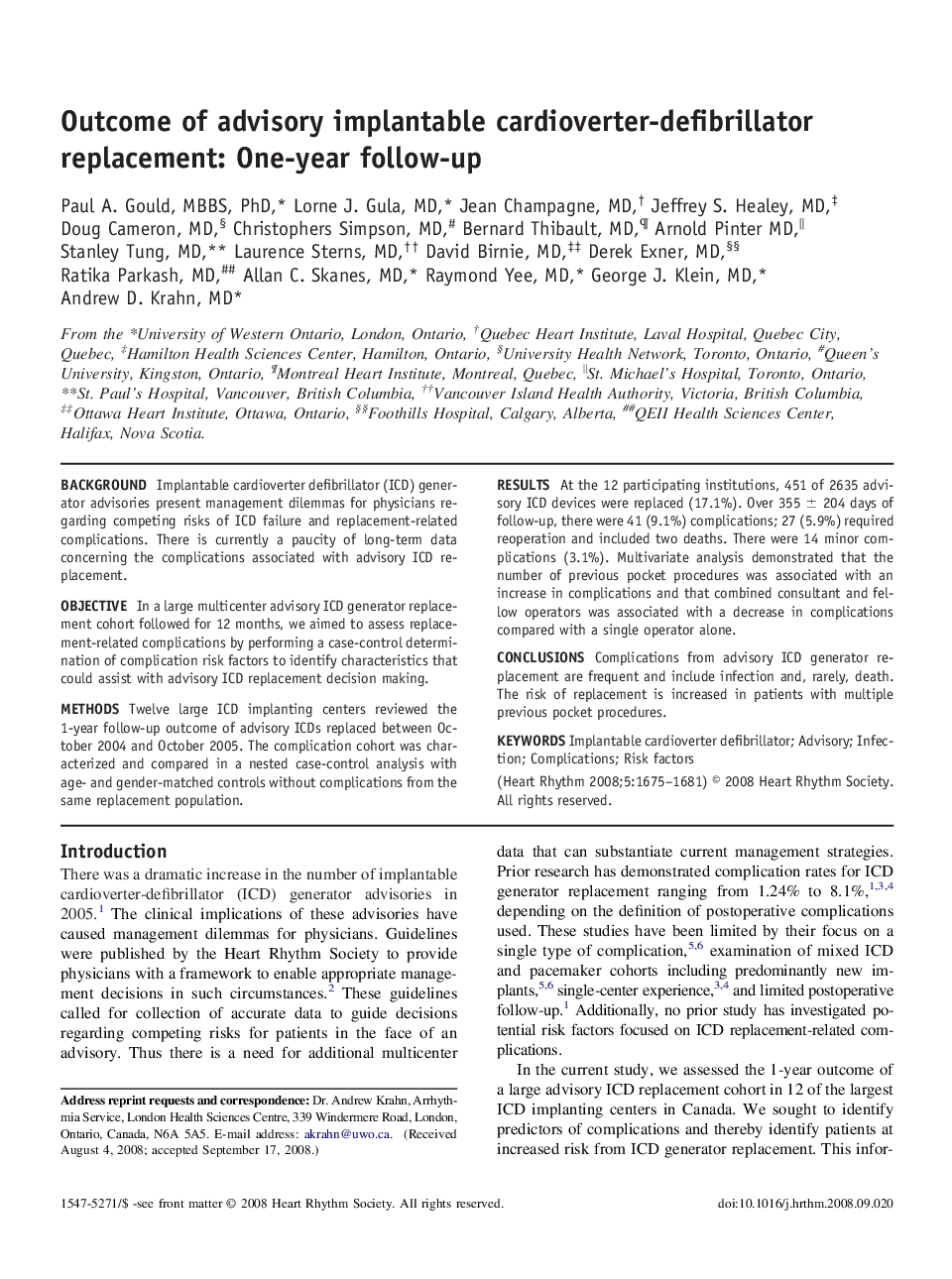| Article ID | Journal | Published Year | Pages | File Type |
|---|---|---|---|---|
| 2925096 | Heart Rhythm | 2008 | 7 Pages |
BackgroundImplantable cardioverter defibrillator (ICD) generator advisories present management dilemmas for physicians regarding competing risks of ICD failure and replacement-related complications. There is currently a paucity of long-term data concerning the complications associated with advisory ICD replacement.ObjectiveIn a large multicenter advisory ICD generator replacement cohort followed for 12 months, we aimed to assess replacement-related complications by performing a case-control determination of complication risk factors to identify characteristics that could assist with advisory ICD replacement decision making.MethodsTwelve large ICD implanting centers reviewed the 1-year follow-up outcome of advisory ICDs replaced between October 2004 and October 2005. The complication cohort was characterized and compared in a nested case-control analysis with age- and gender-matched controls without complications from the same replacement population.ResultsAt the 12 participating institutions, 451 of 2635 advisory ICD devices were replaced (17.1%). Over 355 ± 204 days of follow-up, there were 41 (9.1%) complications; 27 (5.9%) required reoperation and included two deaths. There were 14 minor complications (3.1%). Multivariate analysis demonstrated that the number of previous pocket procedures was associated with an increase in complications and that combined consultant and fellow operators was associated with a decrease in complications compared with a single operator alone.ConclusionsComplications from advisory ICD generator replacement are frequent and include infection and, rarely, death. The risk of replacement is increased in patients with multiple previous pocket procedures.
